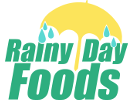Contributed by RL
October is a time for tales. And one bigger than life folklore (villain/ hero) of the Bear Lake Valley was the one time resident that operated a trading post along the east bank of the Bear River just west of what is known as Big Hill for a few years starting in 1848. (http://idahoptv.org/outdoors/
In the annuals of history Peg Leg Smith was a true mountain man, trapper, prospector, and even horse thief, who knew and worked with many of the other legendary mountain men of his day like Jim Bridger, Bill Williams, Kit Carson, Tom Fitzpatrick, Joe Walker and Jed Smith to name a few.
This is a tale you may want to tell your children or grandchildren that can keep them attentive and calm on a dark night when the wind blows cold with a sandwich or hot soup from Rainy Day Foods or to entertain them while riding in the car, perhaps even to get them to sleep with these tales of the west.
Peg Leg was of a Scottish-Irish decedent born in Kentucky and, being tempted with adventure, left his parents home ending up in Missouri and following Antoine Robidoux on a two year trapping /trading expedition to the Indians of the west in 1820. Peg Leg fell in love with the west and the mountain man life, so after a few years of trapping and trading with Antoine he traveled over to New Mexico in 1824 to venture on his own, spending a great part of his life trapping the rivers of the southwest. During this time he led a very colorful life full of all the adventure he sought after. He trapped for furs, went hunting and played the dangerous game of cloak and dagger between the Indians and the Mexican government.
In order to get the furs to market the trappers needed to run a gauntlet between the Mexican military patrols and Apache's or else suffer the consequences of having their furs confiscated by the Mexican government or robbed by the Indians, with the added prospect of losing one's life in the process if either was encountered. While Smith was on his way to market his furs at Fort Bent he earned his nickname Peg Leg.
You see Smith had gathered some furs and with others had started out to deliver them to Fort Bent. (https://www.nps.gov/beol/
From there his travels took him far and wide with one of those stops being here in the Bear Lake Valley with his establishing a trading post as a rest station for those traveling the Oregon trail. (https://www.
One traveler who stopped was a Dr. Charles Boyle who made the observation that Smith is a jolly but one-legged man that Boyle sold a pint of brandy too. Another traveler said that Peg Leg was a fleshy, shrewd looking man and as rough as those that surrounded him.
Of course the Bear Lake Valley could not hold him long from his thirst for adventurer which led him farther west.
As the fur trade ended (https://en.wikipedia.org/
Hopefully none of us will lose our treasure along our life's way. Just like the pioneers who carried their food reserves to see them and their families on their way into the unknown, we also need to prepare for the unknown in our futures by having food stored for long term use. Check out the Rainy Day Food site (https://rainydayfoods.com/) that can help you with these needs with items like food-storage units or paks and water storage solutions. 'Till next time RL

